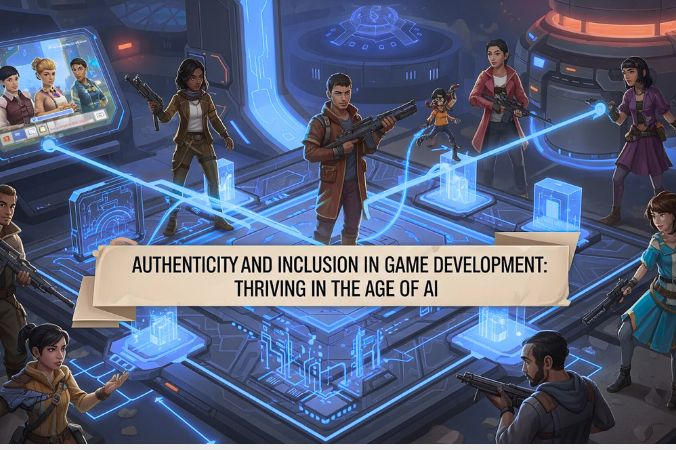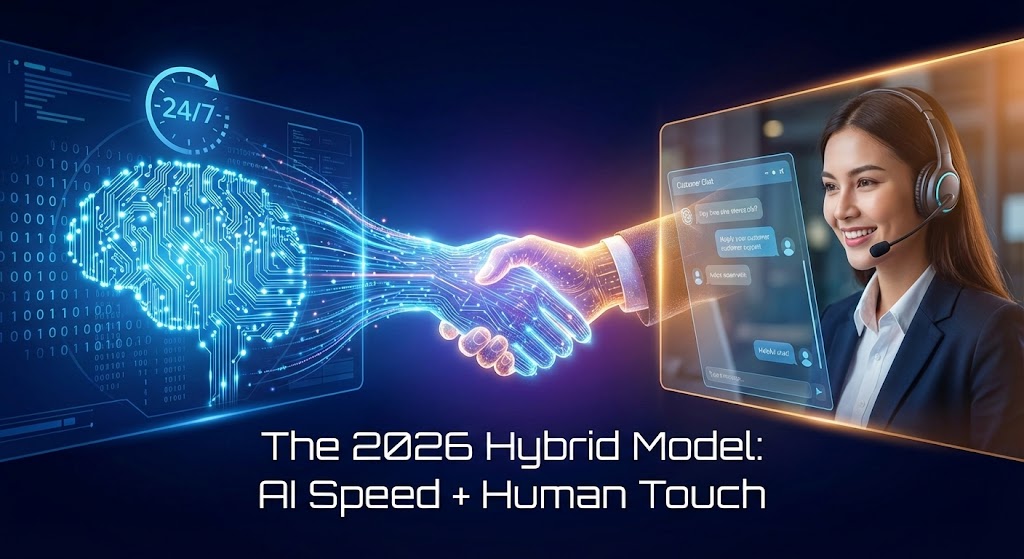Authenticity and Inclusion in Game Development: Thriving in the Age of AI

The global gaming industry in 2025 is evolving faster than ever. Artificial Intelligence (AI) has transformed how games are designed, written, and marketed. From AI-powered NPC interactions to procedural storytelling, developers now have powerful tools at their disposal. Yet, with this rise of automation comes a challenge: how do we ensure games remain authentic, human-centered, and inclusive?
At Webbuggs, we believe technology should enhance creativity, not replace it. Our mission is to help studios and creators deliver unforgettable gaming experiences — whether it’s mobile game development, PC & console titles, AR/VR projects, or blockchain-based play-to-earn ecosystems.
Explore our game development services at Webbuggs
AI in Game Development: A Double-Edged Sword
AI has undoubtedly made game development more efficient. Studios can now create vast open worlds in less time, generate quests automatically, and optimize in-game behaviors using data. Game engines like Unity, Unreal, and Godot are increasingly embedding AI-assisted workflows for asset generation, level design, and performance optimization.
But here’s the risk: when AI produces too much of the content, games can start to feel repetitive — the same quests, the same dialogue patterns, the same experiences. Players today crave authenticity, the kind of detail that only human creativity and lived experiences can bring.
This is why many developers are turning AI into a supporting tool, while focusing their core efforts on cultural depth, emotional storytelling, and diverse representation.
Why Authenticity Matters in Modern Gaming
Players don’t just want entertainment; they want connection. Games like Unpacking, Life is Strange, and Videoverse succeed because they draw from real emotions and experiences.
Authenticity in gaming means:
- Accurate details: Developers traveling to record real sounds or researching environments to make every element feel alive.
- Human-centered narratives: Storylines rooted in genuine struggles, cultures, or personal stories.
- Immersive gameplay: Using tools like AR game development and VR game development to create lifelike worlds that go beyond screens.
When developers lean into real human perspectives, their games stand out in an industry where AI-generated “slop” is becoming common.
Inclusion in Games: Beyond Surface-Level Representation
Diversity in gaming is no longer a side conversation — it’s a necessity. Players want to see characters who reflect the real world: diverse, complex, and relatable.
Games like Monster Prom (gender-neutral dating), Bossgame: The Final Boss is My Heart (queer storytelling), and To a T (disability representation) show how inclusive design can redefine narratives.
Inclusion doesn’t mean forcing identity as a central theme; it means creating natural representation within the game world. For players who rarely see themselves in mainstream media, this presence is invaluable.
At Webbuggs, our multiplayer game development services ensure online worlds are designed to be inclusive and accessible. Whether it’s MMORPG development, battle royale game development, or real-time strategy (RTS) game development, inclusivity should be at the heart of both gameplay mechanics and community design.
The Indie Spirit: Authenticity by Necessity
While big studios leverage AI to scale, indie developers continue to push boundaries in authentic storytelling. Limited budgets mean they often rely on personal experiences, unique mechanics, and creative storytelling to stand out.
For example, some small teams are experimenting with HTML5 game development and WebGL game development to reach broader audiences through accessible platforms. Others are building Facebook Instant Games to tell quick, interactive stories that reflect everyday life.
This indie-first spirit is something Webbuggs supports — empowering small and mid-sized studios with the tools, resources, and expertise to bring human-centered stories to life.
Emerging Frontiers: AR, VR, and the Metaverse
Immersion is the next big chapter of authenticity. Through AR/VR game development, studios can transport players into fully interactive environments, whether it’s exploring cultural landmarks or living through personal memories.
The metaverse game development trend is also creating shared virtual spaces where diverse communities can thrive together. When inclusivity is baked into these spaces, they become more than games — they become cultures.
At Webbuggs, we specialize in creating VR simulations, AR-powered educational apps, and metaverse experiences that prioritize both innovation and authenticity.
Blockchain, NFTs, and New Economies
Another fast-growing area is blockchain and NFT game development. Play-to-earn games and crypto-driven economies have created new opportunities for players and developers alike. However, for these models to succeed long-term, they must move beyond speculation and focus on sustainable, player-first experiences.
That’s why Webbuggs approaches NFT game development and crypto game development not as gimmicks, but as ways to build transparent, rewarding ecosystems that empower players while staying authentic.
The Technical Side of Authenticity
Authenticity isn’t just about stories and characters — it’s also about gameplay quality. That means:
- Game UI/UX design that feels intuitive and inclusive.
- Game performance optimization so every player — whether on mobile or console — enjoys smooth experiences.
- Game bug testing & fixing to remove frustrations that break immersion.
- Game porting services to ensure accessibility across platforms like Windows, Mac, PlayStation, Xbox, and Nintendo Switch.
- Live game support & updates to keep communities thriving over time.
At Webbuggs, we combine creativity with technical expertise to ensure that every project — from hyper-casual mobile games to large-scale multiplayer titles — runs seamlessly while staying true to the vision.
How Webbuggs Helps Developers Stay Ahead
Webbuggs isn’t just a game development company — we’re partners in innovation. Our services cover the full spectrum:
- Mobile Game Development: iOS, Android, cross-platform, and hyper-casual.
- PC & Console Game Development: Windows, Mac, PlayStation, Xbox, Nintendo Switch.
- Web-Based Game Development: HTML5, WebGL, and Facebook Instant Games.
- AR/VR & Metaverse Game Development.
- Multiplayer & Online Game Development: MMORPGs, battle royale, RTS.
- Game Engine Development: Unity, Unreal, Godot, CryEngine.
- Blockchain & NFT Game Development: Play-to-earn, NFT, and crypto games.
- Game Testing & Maintenance: UI/UX design, optimization, bug fixing, porting, and live updates.
By combining these services with our focus on authentic, inclusive storytelling, we help developers build games that don’t just entertain — they resonate.
Conclusion: Human Stories Will Always Win
AI will continue to reshape the gaming industry, but human creativity, diversity, and authenticity remain irreplaceable.
The future belongs to developers who embrace AI as a tool but stay true to the real experiences, emotions, and cultures that players long for. Whether through mobile innovations, VR immersion, or blockchain economies, success will come to those who prioritize human connection.
Looking for a team to build your next project? Contact us.
.svg)


.jpg)

